It takes more than a village
We rode out the pandemic in the idyllic country side. While it was lovely, it was not enough
Welcome to Prone to Hyperbole!
I share the joys and challenges of being a visibly Muslim woman in a sometimes-unfriendly world. A paid subscription is $5 a month. If you’re enjoying my perspective and want to support me, consider upgrading to help me spend more time on writing and share a voice that isn’t often heard.
Seven months before the pandemic shut things down, we moved to Chelsea. The move was primarily logistics-driven. Our daily commute to downtown Ottawa for work from our suburban home had become an awful headache. With two young children who were spending increasing hours in afterschool care, we felt our family time and energy thinning out, stretching to the point of breakage.
But their was also the romantic notion of living in a rustic village. Chelsea is a 10 minute drive from Ottawa’s downtown, and yet it’s a world away, nestled in the Gatineau Hills, surrounded by forests, creeks and rivers. A painting with a backdrop of the sun setting over tree-covered mountains, the sky every hue of pink and orange, peach and white.
Our time in Chelsea can best be signified by the push and pull of embracing country living and longing for the conveniences of the city. Here, the lush, quiet woods with the sounds of chittering chipmunks. Here, the small grocer without the authentic brand of hummus or halal butchers. Here, the open sky just outside our back window, the sunsets shockingly dramatic. Here, the 45 minute drive to my parents’ house, extending in bad traffic, bridges closed or clogged as often as not.
When the shutdown started, we thanked God for our backyard, space enough for the boys to kick a soccer ball as hard as they wanted without losing it to the neighbours. We found ourselves nudged outside when the indoors became either unsafe or uninteresting. Hiking daily down to the creek at the end of the road, watching the water thrum beneath the thin ice, rushing over rotting logs and spring mushrooms.
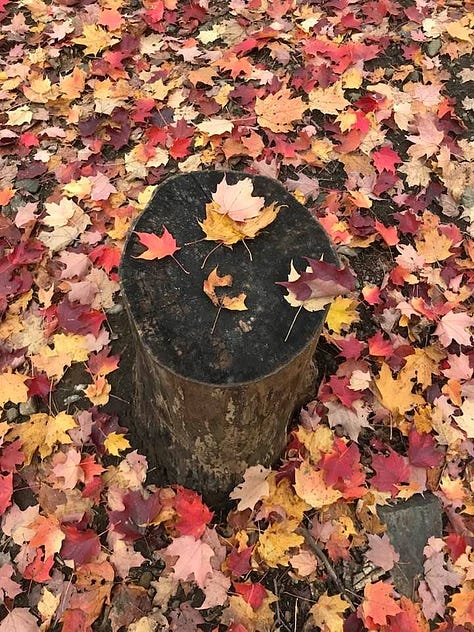

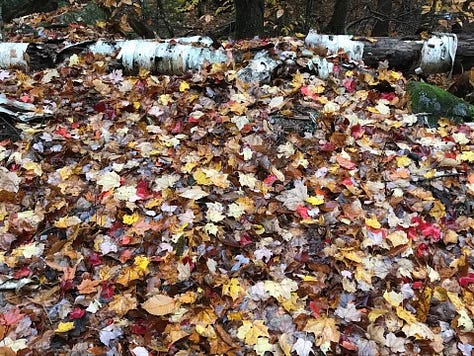
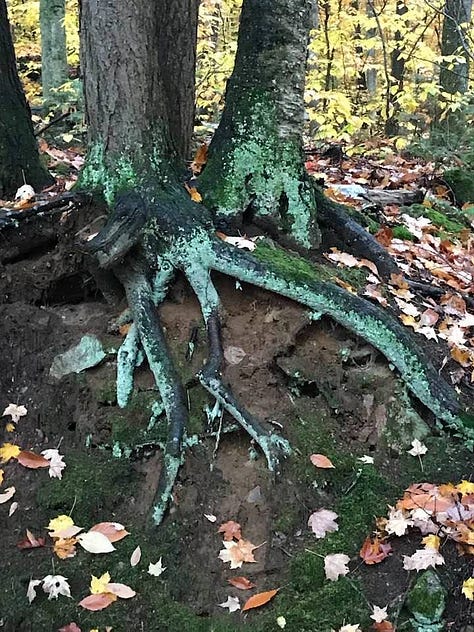


The next winter, with the world still shuttered, we took up cross-country skiing. There are only so many times you can hike a trail, admire a massive birch tree as you circle its path. But with poles in your hand and skis on your feet, the same route becomes an adventure. You glide in the grooves left by the grooming machine. Branches weighed heavy with snow tip down along your path, brushing your sleeves, drip-dripping the soft white powder onto your boots.



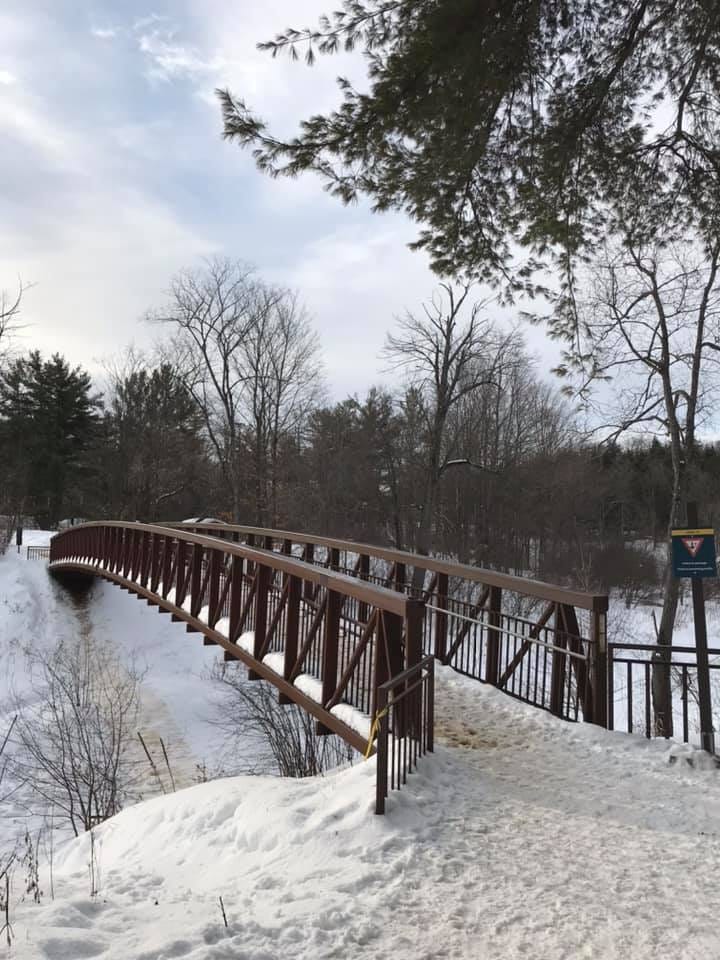

Across the river, my family dwindled. One sister, brought home from Istanbul in the first months of the pandemic, left again when she realized this wasn’t going to be a quick ordeal. Another moved with her husband and children down the 401, to a quieter, warmer city, surrounded by the Great Lakes. My parents started flirting with the idea of Istanbul for themselves. Started researching. Started packing. Grief built up inside me like a mountain on my chest. Heavy. Suffocating.
When we were young, our family of 6 had a routine for getting in the car. My older sisters and I would pile into the back of our blue Pontiac Grand Am, side by side. Giggling. My parents would climb into the front, my father in the driver’s seat. My baby sister would watch us all as she stood outside the car, next to the passenger’s seat, forgetting that her spot was on my mother’s lap, and panic. Ittannoonee! She would cry out. Attiboonee??
Wait for me! A demand from a toddler in baby Arabic. Are you going to leave me?
Are you going to leave me?
As I hiked and skied and trudged through the snow, I found the words on a loop in my head, surreal in the cadence of a small child, the inside joke they had become for my born family throughout my childhood. Now asked with the same panic. A grown woman. 38. Are you going to leave me? Are you?
But what difference did it make if they were a flight away or a car ride away when I could only reach their voices? What difference did it make when we weren’t part of each other’s bubbles, when we lived in tiny units. Immediate family only. Seeking solace in the swish of our skis on the snow, the repetition of the movement, hypnotic. Missing the hugs. Crying our loneliness.
Our second full pandemic winter was the hardest. The weather inconsistent. The snow constantly heavy and melting. I’ve done everything I can, I remember thinking to myself. I’ve bought the cycling gear for the summer and the skiing gear for the winter. I’ve planted my vegetable garden. I’ve made the friends and hiked the trails and learned the back routes. The village had welcomed me with open arms and here I was, longing for my small city life. Longing for mediocre rush hour and box stores. Longing for my old selfcare routine of a coffee shop on downtown road. Longing for a downtown that was more than one intersection long. I couldn’t meditate my way out of loneliness. I couldn’t physical activity my way into community. There was one other hijabi in town and that was a lot of pressure to put on a girl. Hi! You look like me! Wanna be best friends?
I was like Goldilocks and this village was too small. I needed to get back to my just right.
The spring of ‘22, we sold our house in the village and bought one across the river again. The monster we’d been hiding from for two whole years caught us two days after we signed the papers. We were sick for a week. Flu-like. Stuffed up and hot hot hot and a bit dizzy. And then it was gone as fast as it came.
I’ll never really know if Chelsea would have felt different if our lives there weren’t coloured by the pandemic experience, by having to live so separately from the world. My memories tell me that our Muslim friends hardly ever made it across the river; that Chelsea seemed too far for them. That when we’d trek into Ottawa for an event and run into them somewhere, they’d write us off when they heard where we were. It’s only 10 minutes from downtown, I repeated, a hundred times to a hundred people. At prayers. At Arabic school. At outdoor Eid festivals where we stood in the chilly spring air and longed to be inside but for the virus we’d pass to each other.
But memories can be notoriously unreliable. I can picture a few visits from before the world shuttered, and one or two after we’d sold the house but before we’d moved back to Ottawa.
What I know for sure is that my sadness was held in the wide open spaces, that the mountains absorbed my loneliness and buried it within their soil, that I fed the earth and the earth fed me.
In Ottawa, I look out the window and see the neighbour’s house immediately behind us, obscured only by the maple tree that starts in their garden and ends in ours. The tree leans to one side as though limping. We hang our lights from it all summer, sit beneath it after sunset and marvel at the lack of mosquitos. The yard is a postage stamp, but we can walk to the mosque in under 2 minutes, or the river, or the shops.
There’s a ski trail in the winter, but it’s not as well maintained as the Gatineau Park hills, and the snow is refusing to accumulate this year. Last year, though the snow fell, it melted and refroze as ice until it was slick and brittle, too slippery to walk on and too bumpy to skate on.
I was like Goldilocks and this village was too small. I needed to get back to my just right.
The outdoor winter activities that got me through the shutdown are harder to pursue in the temperatures that climate change has given us. But I don’t need to be outdoors anymore in the city. We’ve been jabbed and gotten sick and built up our immunity, or else just accepted that we can’t live alone anymore, that the loneliness might kill us before the virus will.
We visit with our Ottawa friends as often as the kids’ relentless activity schedule will allow us. We text our friends who are still in Chelsea on and off, make plans to talk in a couple of months, to set up a time to see each other. The summer’s crazy, let’s check in once it’s fall. The fall is crazy, let’s check in once the New Year passes. It’s only 10 minutes from downtown, I tell myself. I’m the friend I’m trying to convince now.
Let’s chat in the comments:
Have you ever tried to lean into a different identity? Did it work or did you go back to your “old self”?
Did going back to your old self make you feel better or did you feel like you’d failed?
How was the pandemic for you? Were you in a big city or a smaller town? Did you have a bubble?
Loneliness has become a growing problem in our modern world. Have you dealt with loneliness before? Tell me about it.

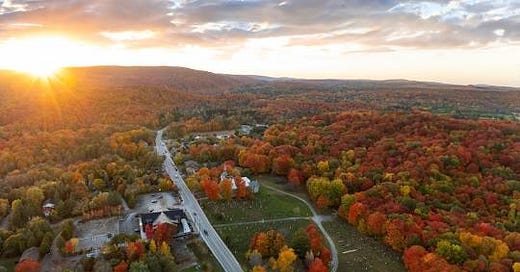



Noha, this was a beautiful reflection! I loved the images and the passage of time in your essay. For me, I had just left my corporate job two months before the pandemic started and I embraced the “homeschooling mom” identity with two toddlers in tow. I started consulting for a family foundation and took my first writing class. I gave myself permission to get messy. I pulled my kid out of school. I embraced freedom. I met neighbors, made moms friends and started new routines. I hosted virtual Quran khatams and hosted family that died from the pandemic. I took on new responsibilities. I met a huge community online and fell in love with spiritual knowledge and started learning quranic Arabic. I basically wanted to get my spiritual affairs in order when I thought the world was going to end. Let each day be the absolute best of my ability. Thanks for helping me remember all this.
It seems those mountains held you when you needed to be held the most, even if it was for a small moment in time. This post was so lovely to read ❤️